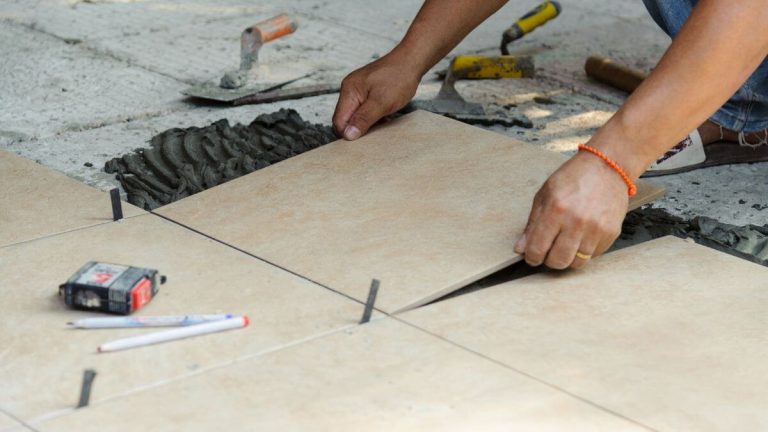Painting and tiling are the final touches that bring buildings to life. Whether it’s a brand-new home, a renovated school, or a commercial property upgrade, these skills are essential for construction, renovations, and interior finishing. With South Africa’s ongoing housing initiatives and township developments, trained painters and tilers are in high demand—especially in urban centres and rapidly growing townships.
Thank you for reading this post, don't forget to subscribe!Overview of the Nasi iSpani Programme
Nasi iSpani is a Gauteng Provincial Government initiative aimed at tackling youth unemployment. Open to unemployed South Africans aged 18–35, the programme places thousands of young people in various public service roles and offers artisan training opportunities. By providing on-the-job learning, stipends, and certification pathways, Nasi iSpani equips participants with real-world skills and work experience.
What Painting and Tiling Training Covers
Through Nasi iSpani, participants gain hands-on training in both painting and tiling:
- Painting skills: surface preparation, primer application, brush and roller techniques, spray painting, and finishing for different materials.
- Tiling skills: measuring and cutting tiles, preparing surfaces, installing tiles with precision, and grouting.
- Practical exposure: working on residential, commercial, and public infrastructure projects under supervision.
Stipends Offered Through Nasi iSpani
Participants receive stipends to cover travel and basic expenses while training. Amounts typically range between R1,200 and R6,000 per month, depending on qualifications, previous experience, and the nature of the placement. This financial support allows trainees to focus on learning without the burden of unpaid work.
Painting and Tiling on South Africa’s OIHD List
South Africa’s Occupations in High Demand (OIHD) list highlights scarce skills that drive economic growth. Artisan painters, tilers, and construction finishers feature prominently on this list because of the country’s infrastructure projects and housing backlog. Being on the OIHD list increases opportunities for employment, apprenticeships, and career mobility.
Why These Skills Are Essential in South Africa
- Housing projects and township development: government-led and private housing developments rely on skilled finishers.
- Renovation and commercial property growth: demand for modern, durable finishes in offices, malls, and hospitality spaces.
- Shortage of artisans: many employers struggle to find qualified painters and tilers, which boosts earning potential for trained professionals.
Career Paths Beyond Nasi iSpani
Graduates of the programme can follow several career paths, including:
- Joining construction or property maintenance companies.
- Working with interior design and renovation services.
- Starting their own businesses as contractors or subcontractors for private clients.
- Specialising in high-end or niche finishes to command premium rates.
Average Salaries for Painters and Tilers
Earnings vary by experience, location, and employment type:
- Entry-level artisans: R4,500–R8,000 per month.
- Experienced artisans: R10,000–R18,000 per month, depending on skills and certifications.
- Self-employed contractors: earnings can exceed R20,000 per month on large or high-end projects.
Gauteng vs Other Provinces: Hiring and Pay Trends
Gauteng leads in construction and renovation demand, with higher average pay compared to other provinces due to larger-scale housing and commercial projects. Western Cape and KwaZulu-Natal also offer strong opportunities, especially in tourism-driven areas where property upgrades are frequent.
Specialisations in Painting and Tiling
Artisans can expand their skills and increase their income potential through specialisation:
- Painting: decorative finishes, epoxy coatings, waterproofing, and industrial coatings.
- Tiling: ceramic, porcelain, glass, and natural stone installations for kitchens, bathrooms, and outdoor spaces.
- High-end finishes: commercial and luxury property finishes requiring precision and unique designs.
Skills Needed to Succeed in Painting and Tiling
Success in these trades goes beyond basic training. Key attributes include:
- Attention to detail and accuracy.
- Colour theory understanding and design awareness.
- Safety practices and working at heights.
- Project and time management skills.
Alternative Qualifications Beyond Nasi iSpani
For those who want to build on their training:
- TVET College courses: N1–N6 in Building and Civil Construction or similar artisan trades.
- Artisan certification: via the Quality Council for Trades and Occupations (QCTO) or relevant SETAs.
- Learnerships and apprenticeships: through construction companies or industry bodies.
Industry Trends Driving Demand
Several trends are boosting demand for painters and tilers:
- Major infrastructure projects in Gauteng and other metros.
- Post-COVID renovation and housing booms.
- Sustainable and smart building practices requiring skilled artisans for eco-friendly finishes.
Challenges of the Trade
While rewarding, painting and tiling come with challenges:
- Physically demanding work and long hours.
- Working at heights and handling chemicals.
- Seasonal work fluctuations in certain regions.
- High competition in some markets, requiring ongoing skills development.
How to Apply for Nasi iSpani Painting and Tiling Training
Applying for Nasi iSpani is straightforward:
- Toll-free call: Contact the Nasi iSpani hotline for guidance.
- USSD code: Dial the official USSD code (provided by Gauteng Provincial Government) to check opportunities.
- Email/online applications: Submit your CV and ID copy via the official Nasi iSpani email or portal.
Be sure to have a certified copy of your ID, proof of residence, and any relevant qualifications ready when applying.
Read more: Nasi iSpani Plumbing Training: How to Build a Secure Career in South Africa
FAQs: Painting and Tiling Careers
Q: Do I need previous experience to join?
A: No, but basic knowledge of construction is helpful.
Q: Will I get a certificate?
A: Yes, Nasi iSpani participants receive proof of training and, in some cases, accredited certificates.
Q: Can I work while training?
A: It’s possible, but the programme is full-time and may limit other work commitments.
Q: How long does training last?
A: Programmes typically run from 6–12 months depending on the placement.
Painting and tiling are practical, high-demand skills that open doors to secure employment and entrepreneurship in South Africa. With the Nasi iSpani programme offering stipends, training, and a pathway into the workforce, now is the perfect time for young South Africans to build a career in these essential finishing trades.




